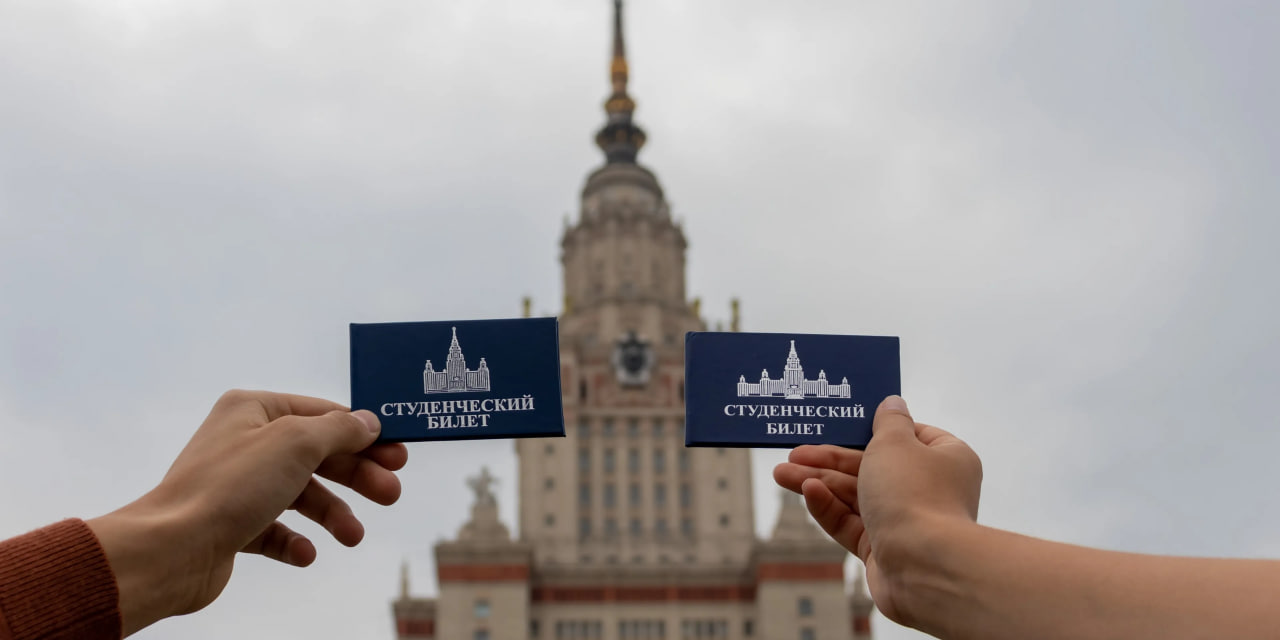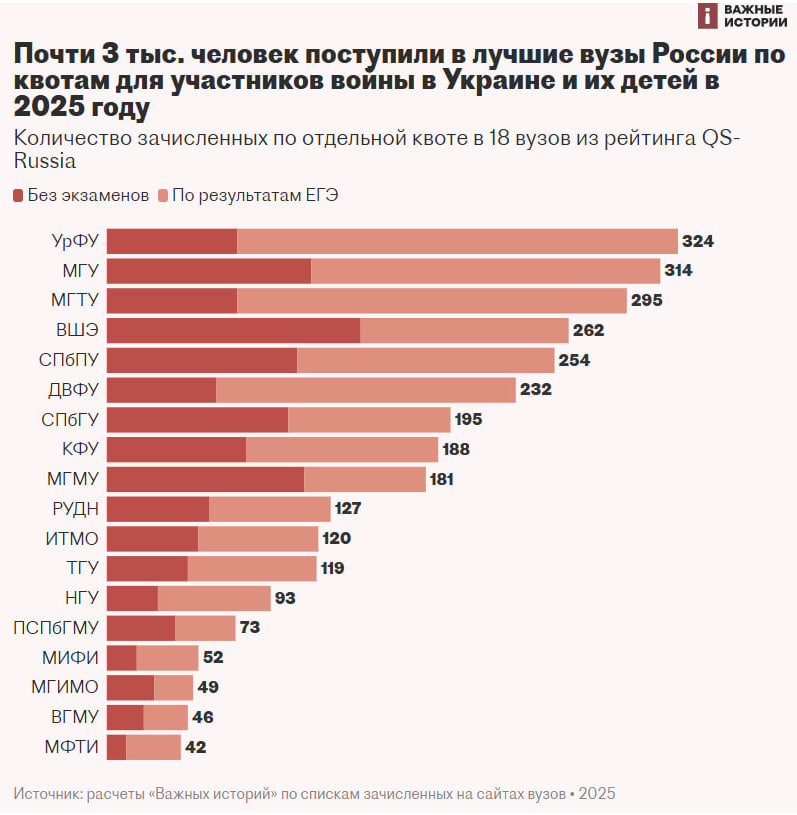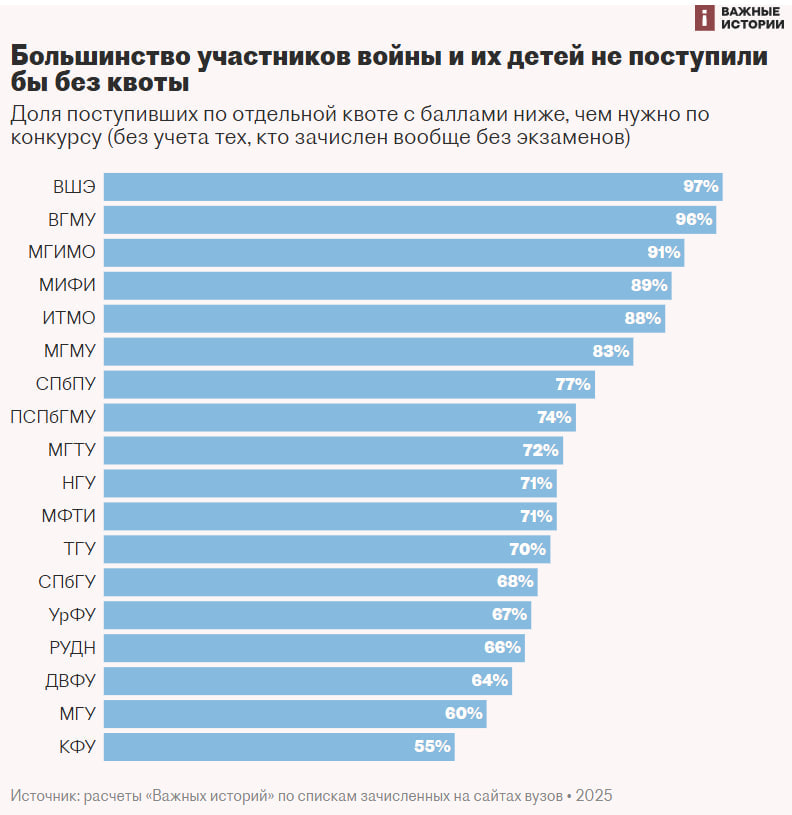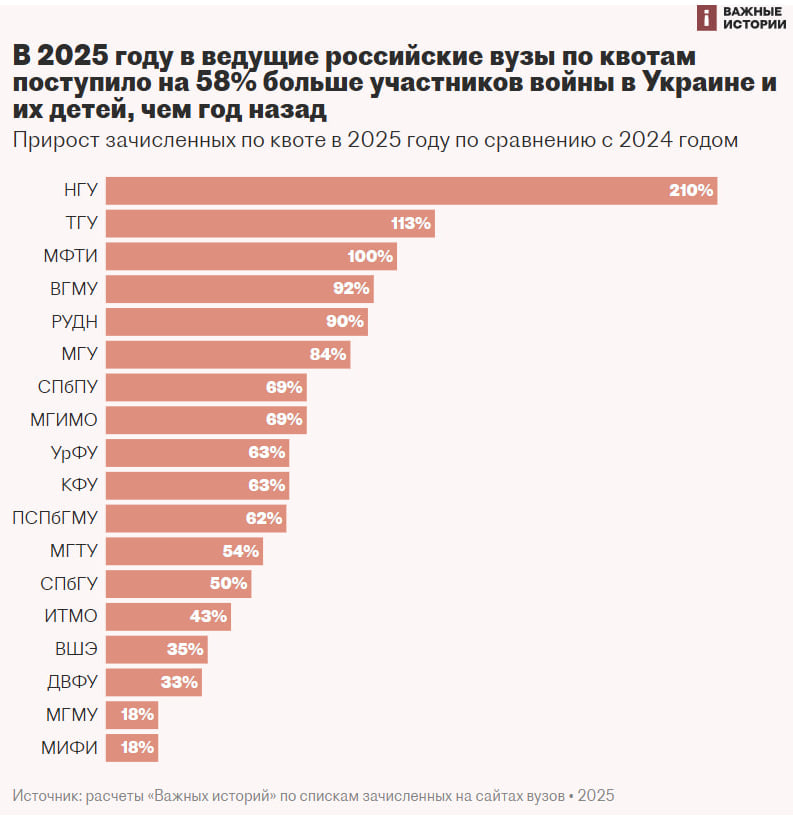How War Is Forcing Out Top Students from Russia’s Leading Universities


Institutions such as St. Petersburg State University, Moscow State University, HSE, MIPT, and major medical universities are seeing more seats go to beneficiaries of military quotas — at the direct expense of high-scoring applicants.
In medical schools, applicants scoring 161–192 are being accepted into pediatrics programs where the competitive threshold is 244.
In some programs, the general competition has all but disappeared. At Sechenov Medical University in 2024, only 2.5% of admitted students to “General Medicine” were regular applicants. At RUDN University’s Dentistry program this year, not a single budget-funded seat remained for non-quota students.

This is the result of a special quota introduced by Putin’s 2023 decree, which guarantees at least 10% of government-funded university seats in every field of study to participants in the war and their children.
In 2025 alone, 50,000 state-funded spots were reserved for these groups. In July, the Ministry of Science and Higher Education expanded the quota even further.
This preferential access extends not only to soldiers, but also to security officials and “citizens performing similar duties” on Russian-occupied Ukrainian territories — along with their children. It is the only case in Russian higher education where a parent’s profession directly grants their child the right to privileged admission.

